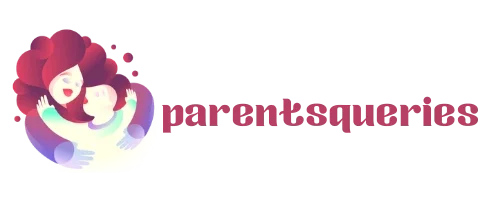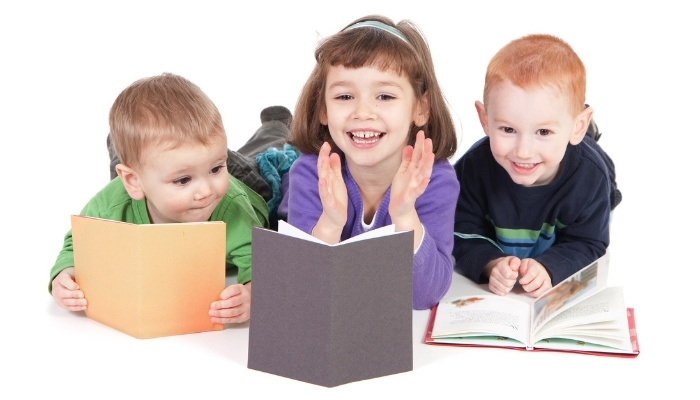15-Month-Old Not Talking: Should You Be Worried?
As a parent, it can be concerning when your child does not hit important milestones. One of the biggest worries for parents is when their 15-month-old not talking. As a parent, I understand the worry and concern that comes with this situation. It is important to remember that not all children meet the same milestones at the same time, so if your 15-month-old is not talking, there are plenty of things you can do in order to help them start speaking.
Language Development in 15-Month-Old
When it comes to language development in 15-month-olds, the possibilities are endless. At this age, children typically understand and use more words than ever before. They take part in simple conversations with a few recognizable phrases and can even begin to learn some basic rules of grammar. By 15 months old, toddlers become interested in their environment and what is going on around them, making them eager to learn new words and concepts.
At this stage of development, toddlers can usually say between 10-20 words that are easily understood by others. This includes labels for objects or people they see as well as simple instructions such as “no” or “stop”. In addition, many 15-month-olds also have the ability to follow simple commands like “Give me the ball” or “Sit down”.
How Many Words Should a 15-Month-Old Say?
The power of language and the speed of a child’s speech development can be fascinating. By the time they are 15-months old, many toddlers have begun to form their first words and string multiple words together. But how many words should a 15-month-old say?
Research has found that baby talk isn’t just adorable – it is also essential for early language development. At this age, most children will understand more than they can express with spoken language. However, experts suggest that by 15 months of age, the average toddler should have between 3 and 10 different words in their vocabulary that they can use to communicate basic needs or ideas.
It’s important to remember though that every child develops at their own pace and some may exceed expectations while others take longer to learn new concepts and words.
Normal Talking for a 15-Month-Old
At 15 months old, toddlers are in the prime of a rapid language-learning period. During this stage, they typically utter between 3-10 words regularly. Most 15-month-olds will make attempts to communicate their needs and wants by pointing, grunting, or gesturing. As parents and caregivers, it is important to respond positively in order to encourage your toddler’s communication development. Check out Can 2-Year-Old Read and Write?
In addition to verbal speech, 15-month-olds understand simple instructions and can follow them if given directly with one step. It is also not uncommon for toddlers at this age to engage in ‘conversations’ with adults via vocalizations or facial expressions even though they do not have an extensive vocabulary yet. Naming common objects around the house such as toys or furniture can help babies start recognizing words and ultimately expand their vocabulary.
15-Month-Old Not Talking
Are you the parent of a 15-month-old who isn’t talking yet? Don’t panic! Every child develops differently and most parents don’t need to worry until their 18-month checkup. Most children’s first words start to develop between 12 and 18 months of age, so your little one may still be within the typical development range.
To help support speech development, there are plenty of things you can do at home with your toddler. For example, model language for them by narrating what you’re doing in simple terms throughout the day or talking about the objects that they’re playing with. Additionally, reading aloud books together is also very helpful for language development as it provides an opportunity for both parent and child to learn new words that can be used in everyday conversations.
What To Expect
As any parent of a 15-month-old knows, it can be both exciting and nerve-wracking to watch your little one grow up. One milestone that parents look forward to is their child’s first words. If your 15-month-old isn’t talking yet, you may be wondering what to expect in the coming months.
The good news is that most children begin speaking in some form by 18 months old. However, every baby develops at their own pace and it’s important not to compare them with other children their age. Even if your 15-month-old not talking yet, they may still be communicating through vocalizations such as babbling or making animal sounds. This is actually great progress! They are learning how to make different sounds with their mouth and developing basic speech skills.
The 8-12 month range is often full of babbling and other vocalizations, but at 15 months you may be expecting more.
During the 12-18 month range, most toddlers will begin using simple words such as “mama” or “dada” to refer to their loved ones. At this stage in development, toddlers can also understand simple commands like ‘no’ and ‘stop’.
By 18-24 months most toddlers will have a large vocabulary with around 50 words they are able to use correctly in conversation. Read Can 3 Years Old Read and Write?
When To Worry
When it comes to gauging the developmental health of a 15-month-old, there are certain milestones that parents should be on the lookout for. One of those is language development, and not talking by this age can be cause for concern.
Though it may seem like an alarming sign, not all cases signify a potential problem. In order to determine when it’s time to worry about your little one’s lack of speaking ability, it’s important to understand the basics of language development in infants.
At this age, babies should typically have some basic understanding of words and be able to produce sounds like “ma-ma” or “da-da.

How To Help Your Baby Talk
Babies are born with the natural ability to learn how to talk, but they need their parents’ help in order to do so. Talking is an important part of a child’s development and it can be quite a fun process for both parent and baby. Here are some tips on how you can help your baby start talking:
To begin, watch your baby when she talks or makes sounds. Babies will often make noises like “bababa” or “dada” before they start saying real words. Listen carefully for these early signs of communication and respond to them by repeating the sounds back or by making other appropriate noises. Doing this will encourage your baby’s attempts at talking and show her that you’re paying attention.
Next, use positive reinforcement when your baby says something that even resembles a word. Check Can 4-Year-Olds Read and Write?
15-Month-Old Development Red Flags
It is important to recognize the developmental milestones that are expected at 15 months of age. At this stage, toddlers should be able to understand simple commands, express themselves through words and gestures, and stand on their own two feet. However, if a child is not meeting these milestones then parents should pay close attention as there may be cause for concern.
Parents should look out for red flags in their toddler’s development such as a lack of interest in social interaction with others or failure to follow instructions. Additionally, toddlers who do not show signs of expressing emotions like joy or sadness can also indicate potential problems with development.
If parents notice any of these red flags they should immediately seek professional help from a pediatrician or psychologist so issues can be addressed in a timely manner. Early intervention can make a huge difference when it comes to helping children reach those important milestones.
Late Talking in Children
Late talking in children is a common phenomenon that can cause worry for parents who want their child to develop typically. While the majority of children begin speaking at around 12-15 months, there are some kids who remain nonverbal until 18-24 months or even later.
Late talking is not always a sign of developmental delay and can have many causes including hearing loss, autism spectrum disorder, and speech disorders. Most late talkers catch up by age three; however, if your child has significant delays in expressive language as well as other areas like cognitive development and social interaction you should consult with your doctor or pediatrician to discuss further evaluation.
Early intervention services such as speech therapy may be recommended if your child is diagnosed with a speech-language delay or disorder.
Can a 15-Month-Old Be Diagnosed With Autism?
It is possible for a 15-month-old to be diagnosed with autism, although it is more common for children to be diagnosed at 18 months or older. According to the National Institute of Mental Health (NIMH), 1 in every 166 children has autism spectrum disorder (ASD). While there is no single cause of ASD, early diagnosis can help families get the support they need and access treatments that can help improve outcomes.
At 15 months old, parents should look out for signs that their child may have autism such as difficulty interacting socially with others and limited language development. Other warning signs include restricted interests and repetitive behaviors like lining up toys or flapping hands.
When Do Babies Start Talking Clearly?
Babies begin to babble and use language to communicate before they can even walk. At around 6-15 months, babies will start saying their first words. By 18 months, most children can understand and utilize simple phrases. As they grow older, toddlers develop more complex language skills. By the time they turn two years old, most infants have a vocabulary of at least 50 words and are able to string together two-word sentences with increasing accuracy.
As your child approaches three years of age, you’ll notice them speaking in full sentences as well as understanding a variety of commands. This means that by the time your baby reaches 3 years of age, their communication abilities should be clear enough for you to understand almost everything they say!
When Do Babies Talk in Sentences?
Babies are amazing! From the moment they enter our lives, they bring joy and laughter. But while they may babble and make all sorts of noises, when do babies actually start talking in sentences?
The development of language in babies is incredible. By 2 years old, most children can put two words together to form simple phrases such as “Mommy up” or “More juice.” However, it typically isn’t until around age 3 that children begin stringing multiple words together to form complete sentences. This process begins as soon as 18-24 months with a few short phrases like “Where doggie?” or “All gone.” As their vocabulary expands and comprehension increases, their sentences become more complex over time. Learn Enfamil Gentlease Vs Similac Formulas.
Conclusion
It is important to remember that there are many possible explanations for why a 15-month-old not talking. It could be a sign of delay, but other things such as environment, culture, and family dynamics should also be considered. Ultimately, speaking with an expert about the issue can help determine the underlying cause and inform the next steps for encouraging language development in the child. As parents, we know our children best and it’s important to trust our instincts and do what is best for them. Read Yams for Twins.






